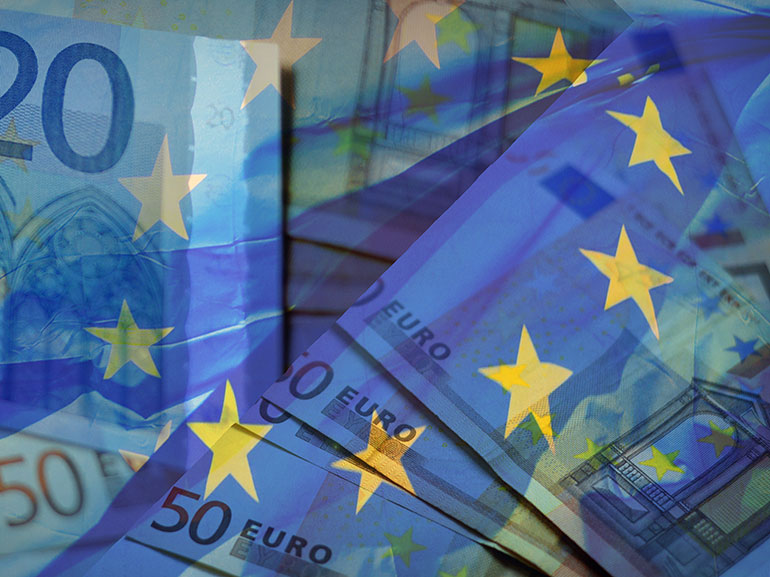Single-Digit Inflation: Stability or Trouble for the ECB?
Investors have been on the look-out for any indication that price pressures are easing in Europe in the wake of the ECB's move towards aggressive monetary policy tightening. The European Central Bank slowed the rate of interest hikes at the last meeting on December 15 but promised to keep fighting inflation. Most recently, on Wednesday morning, French inflation came in below expectations, posting a print of 6.7% compared to a consensus of expectations at 7.3%. This unexpected result came on the heels of German inflation falling below expectations into single digits on Tuesday, which was attributed to lower energy prices.
However, the potential relief in inflation is unlikely to satisfy the ECB, despite the latest German figures suggesting that price growth has gone over the peak. Analysts point to this price drop as partially attributed to government support. The data also indicates that core inflation, which excludes food and energy components, has continued to accelerate, which could support the ECB's drive to increase rates. German inflation was partially reduced by a one-off payment for household energy bills. Spain's reduction in inflation, on the other hand, was due to lower electricity prices from government relief measures, coupled with free rail travel and discounts on urban transport.
Following the Spanish and German data, the pan-European Stoxx 600 index rose 1.2% on Tuesday, January 3. Germany's 40 index (FDAX) and the French 40 index (FCE) showed more modest gains, up 0.8% and 0.4%, respectively. Meanwhile, the Euro posted a three-week low against the Dollar (EURUSD), falling 0.95% on Tuesday. (Source:Reuters)

Latest Yield Moves
Following France's cooler-than-anticipated CPI read on Wednesday, January 04, European bond yields fell. The French yield declined as much as 14bps, while the benchmark German yield dropped 8bps in the early trading hours. Meanwhile, the benchmark for the so-called "peripheral" bonds, the Italian ten-year, was down as much as 16bps. (Source:Yahoo Finance)
Does the ECB Have a Core Inflation Problem?
The thinking seems to be that headline inflation in Germany has peaked, unless there is another significant surge in energy prices. That implies double-digit inflation is now in the rear-view mirror. However, that doesn't mean reaching substantially lower inflation rates will be easy.
While headline inflation has shown to be able to come down quickly, core inflation remains stubbornly high and, to make things more complicated for the ECB, even continues to increase. The ECB won't make policy based on highly volatile energy prices and government relief measures, which are seen as the drivers of the latest moves in inflation.
Meanwhile, increasing rates in the Eurozone and an expected unwinding of the ECB’s balance sheet from March of 2023 onward could lead to a potential debt crisis in Italy as public debt could also rise.
Bank Still Sees Rates Moving Higher
German "core" CPI, which does not include the volatile food and energy segment, rose 1.0% in December. That implied an annual inflation increase of 4.9%, higher than the 4.6% reported previously. This core number is seen as more important to the ECB, as it discounts volatility. Spain showed a similar pattern, with annual core inflation rising to 6.9% from 6.3% in December 2022.
In a recent interview about Croatia joining the Euro this year, ECB President Christine Lagarde insisted that policy rates must be higher to bring inflation down to the target rate of 2%. She said the process is "essential" and didn't want inflation to become entrenched. She also expressed concern that wages were rising faster than expected and could start fueling inflation.
Analysts are expecting as much as two consecutive 50bps hikes over the next couple of meetings, even as the region is experiencing an economic slowdown. Lagarde acknowledged that by saying that the "feared" recession would be “short-lived and shallow”.
To Sum Up
The latest inflation figures out of France were part of a series of signals that there is easing price pressure in Europe, but Germany's inflation rate remains largely important for ECB. December inflation for the whole Eurozone is scheduled to be reported on Friday, January 6th, and is expected to decelerate to 9.5% from 10.1% in November, down in single digits. However, analysts are cautioning that the fight to get prices down is not over, and there could still be up to 100bps in hikes over the next two meetings.
